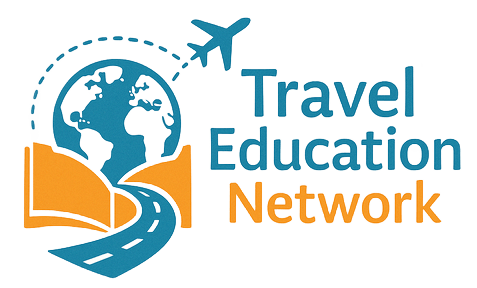Travel Is Education: Important Lessons You Can’t Learn in a Classroom
Want to learn more than a textbook can teach? Travel offers invaluable life lessons and personal growth through real-world experiences. From navigating bustling Manila markets to exploring ancient ruins, travel cultivates adaptability, empathy, and cultural awareness. Discover how stepping outside your comfort zone can broaden your perspectives, enhance critical thinking, and build confidence. Embark on a journey of self-discovery and explore the transformative power of travel.
Important information

- Travel provides experiential learning that fosters cultural awareness and personal growth, going beyond textbook knowledge.
- Navigating unfamiliar situations and diverse cultures builds adaptability, problem-solving skills, and empathy.
- Travel enhances social intelligence through cross-cultural communication, active listening, and building international relationships.
- Experiencing different lifestyles and socioeconomic realities cultivates gratitude, humility, and a broadened perspective.
- Travel promotes critical thinking, organizational skills, and language acquisition through real-world challenges and immersive experiences.
Travel as a Form of Education: Lessons Beyond the Classroom
Travel is a powerful educator, offering lessons far beyond the classroom. It provides experiential learning, fosters cultural awareness, and cultivates personal growth. Through real-world interactions, travel enhances understanding in ways textbooks simply can’t. It teaches adaptability, builds empathy, and instills a deep appreciation for diverse cultures. Engaging with different communities and navigating unfamiliar situations broadens perspectives and encourages stepping outside comfort zones. This fosters personal development and offers valuable insights into various ways of life, opportunities often missed in traditional education. Travel expands your horizons by promoting a deeper understanding of the world and yourself. It offers the following benefits:
- Experiential learning, fostering cultural awareness, and cultivating personal growth.
- Enhanced understanding through real-world interactions.
- Development of adaptability, empathy, and appreciation for diverse cultures.
- Broadened perspectives and encouragement to step outside comfort zones.
- Valuable insights into various ways of life and personal development.
Why Travel is the Best Education
Travel is a powerful educator, offering lessons beyond any classroom. Experiencing diverse cultures firsthand fosters a deeper understanding of the world, allowing you to interact directly with new environments and cultivate a profound appreciation for our planet.
Navigating unfamiliar situations hones essential life skills, such as adaptability and problem-solving. Deciphering a foreign train schedule or communicating without knowing the local language nurtures resourcefulness.
Travel also breathes life into academic subjects. History and geography become tangible experiences when you visit ancient ruins or stand on the very ground where historical events occurred. This adds powerful context, making learning more meaningful.
Perhaps travel’s greatest gift is personal growth. Stepping outside your comfort zone, while daunting, fosters confidence and independence. You learn to rely on yourself, gaining invaluable life lessons that broaden your perspective and ultimately enrich your life in countless ways.
What Travel Teaches That Classrooms Can’t
Travel is an incredible teacher, offering real-world lessons no classroom can match. It cultivates adaptability, empathy, and cultural understanding. Navigating unfamiliar environments fosters personal growth, while interactions with diverse cultures broaden perspectives. Travel also nurtures self-reliance and instills gratitude by exposing you to different ways of life. Witnessing others’ experiences can profoundly shift your own. Moreover, travel sharpens resourcefulness and problem-solving skills, invaluable assets in any situation. Travel offers invaluable life lessons.
Benefits of Travel
- Cultivates adaptability and empathy.
- Fosters personal growth through navigating unfamiliar environments.
- Broadens perspectives via interactions with diverse cultures.
More Advantages of Exploring the World
- Nurtures self-reliance and instills gratitude.
- Exposes you to different ways of life, profoundly impacting your own.
- Sharpens resourcefulness and problem-solving skills.
Cultural Immersion and Global Perspectives
Traveling unveils a tapestry of cultures, allowing you to experience new customs and traditions firsthand. This immersive experience cultivates empathy and broadens your perspective. Engaging with locals offers unique insights into their lives, providing an invaluable learning opportunity.
Building international friendships fosters understanding by challenging your assumptions and promoting tolerance and respect. These connections bridge cultures, creating a more interconnected world.
Cultural awareness fuels personal growth, encouraging adaptability and open-mindedness. You learn to question your own biases and embrace new perspectives, expanding your worldview and fostering greater self-awareness. This deeper understanding of your place in the world may lead you to discover new values and ultimately, contribute to your personal development.
Experiencing Different Cultures and Lifestyles
Travel is a unique form of education that extends far beyond the traditional classroom. Immersing yourself in different cultures fosters understanding and appreciation. For example, exploring Manila’s local markets offers a glimpse into daily life and showcases local crafts. A visit to the Cultural Center of the Philippines exposes you to traditional Filipino dance and artistry. The Ayala Museum provides a focused exploration of the nation’s history and culture. These immersive experiences cultivate empathy, respect, and a broader understanding of diverse lifestyles. Participating in local festivals, such as the Feast of the Black Nazarene, reveals spiritual and cultural practices. Travel encourages personal growth by challenging preconceived notions and expanding perspectives.
Manila’s Local Markets
Exploring Manila’s local markets offers a glimpse into daily life and showcases local crafts.
Cultural Center of the Philippines
A visit to the Cultural Center of the Philippines exposes you to traditional Filipino dance and artistry.
Ayala Museum
The Ayala Museum provides a focused exploration of the nation’s history and culture.
Feast of the Black Nazarene
Participating in local festivals, such as the Feast of the Black Nazarene, reveals spiritual and cultural practices.
The Role of International Friends in Building Understanding
International travel and friendships offer incredible cultural insights. These bonds foster understanding and empathy, enriching your journeys through shared experiences. Such connections also unlock opportunities for personal growth and learning, leading to a deeper appreciation of your own heritage and a greater value for global diversity. Often, these friendships spark authentic bilingual conversations, further enhancing cross-cultural exchange and offering a powerful way to connect with the world. These unique experiences can broaden your perspectives in ways you never imagined.
How Cultural Awareness Enhances Personal Growth
Traveling broadens our perspectives, fostering cultural awareness and personal growth. Experiencing new cultures firsthand challenges preconceived notions and offers invaluable insights. This immersion sharpens critical thinking, encourages adaptability, and cultivates a deeper understanding of our interconnected world.
While travel presents unique challenges requiring problem-solving in unfamiliar situations, it fosters self-reliance and resilience. Navigating new environments encourages mindfulness and enhances self-awareness, allowing you to truly live in the present moment.
Immersing yourself in different cultures nurtures empathy and appreciation for diverse lifestyles, contributing to a more holistic worldview. Ultimately, travel transforms us.
Personal Growth Through Travel
Travel is transformative, shaping your character and who you become. Navigating unfamiliar cultures fosters self-reliance and adaptability, boosting your confidence as you learn to overcome challenges resourcefully. These experiences also impart valuable life lessons, nurturing gratitude and humility. Exposure to diverse perspectives and lifestyles abroad can shift your viewpoint, deepening your appreciation for your own life while enhancing your understanding of global interconnectedness. By stepping outside your comfort zone and embracing new experiences, you cultivate resilience and broaden your perspectives, ultimately enriching your sense of self.
Character Development and Identity Formation
Travel transforms you, pushing you to discover your true self. Foreign experiences challenge your preconceived notions, leading you to re-evaluate your values. Adapting to unfamiliar environments fosters resilience and independence. You evolve into a global citizen, and navigating new cultures enhances self-awareness. Ultimately, travel illuminates your place in the world.
Building Confidence and Self-Reliance
Traveling boosts your confidence by placing you in unfamiliar situations that demand quick problem-solving and independent decision-making. These experiences foster self-reliance, and navigating new cultures sharpens your resourcefulness and increases your independence. This newfound confidence translates into both personal and professional growth, making you more adaptable and prepared for whatever comes your way.
Life Lessons in Gratefulness and Humility
Journeys transform us, exposing us to diverse lifestyles and socioeconomic realities. These experiences cultivate gratitude and humility, allowing us to appreciate our own privileges, such as access to clean water and education.
Immersing ourselves in different cultures broadens our perspectives and challenges preconceived notions. We begin to question what we once considered essential, recognizing the universal human desire for connection and belonging.
Travel often reveals a profound truth: happiness lies not in material possessions, but in shared experiences and human connection. Recognizing our small place in the vast world fosters humility and shifts our focus towards intrinsic qualities.
Skills and Knowledge Acquired Through Travel
Traveling enriches our global perspective, offering firsthand experiences of diverse landscapes and cultures that enhance our geographical knowledge. Imagine exploring vast deserts and lush rainforests, or connecting with history by visiting ancient ruins and iconic landmarks. These immersive experiences bring the past to life.
Benefits of Living Abroad
Living abroad accelerates language acquisition. Daily interactions, like ordering food or asking for directions, become authentic language lessons, boosting fluency and expanding vocabulary. Conversations with locals and exposure to regional dialects sharpen listening comprehension through practical application.
Advantages of Trip Planning
Planning a trip cultivates valuable skills. Booking flights and accommodations requires logistical planning, while creating itineraries and managing budgets fosters organizational abilities. Researching destinations and local customs enhances information-gathering skills, making you a more resourceful traveler.
Boosting Geographical Knowledge and Historical Appreciation
Traveling opens your mind to new experiences. From diverse landscapes and climates to fascinating cultures, firsthand encounters enrich your understanding of the world, especially its geography. Exploring historical sites, monuments, and museums adds another layer, bringing the past to life and deepening your grasp of history’s impact on the present. This immersive experience powerfully connects theoretical knowledge with tangible reality, fostering a greater appreciation for the past.
Language Learning Through Immersive Experiences
Living in a country significantly speeds up language learning. Constant exposure to the language provides many chances for real-life conversations, which helps you practice consistently and become fluent.
Developing Organisational and Research Skills
Planning a trip offers an exciting adventure and strengthens your organizational skills. From researching destinations and booking flights and accommodations to navigating visa requirements and managing a budget, each step refines your ability to plan and execute complex tasks. Creating a detailed itinerary further enhances these skills. This organizational prowess translates seamlessly into other areas of life, such as managing work projects or coordinating events. Moreover, travel planning fosters adaptability. Unexpected issues inevitably arise, requiring you to think on your feet and adjust your plans. This acquired flexibility becomes a valuable asset, empowering you to navigate life’s unforeseen challenges with confidence.
Travel’s Impact on Critical Thinking and Problem-Solving
Travel sharpens your mind by constantly presenting unexpected challenges. Navigating unfamiliar transit systems, overcoming language barriers, and adapting to cultural differences require quick thinking and adaptability. Travelers learn to evaluate information efficiently, weighing options and making decisive choices. Problem-solving skills are honed, and resourcefulness becomes essential. A canceled flight, for instance, forces a traveler to assess alternatives, weigh pros and cons, and make a smart decision under pressure, building critical thinking skills applicable to all aspects of life. Travelers become adept at analyzing situations, finding solutions, and making decisions under pressure.
Unexpected events, such as flight delays or cultural misunderstandings, are common occurrences during travel, fostering adaptability and resilience. Navigating unfamiliar territories teaches you to adjust to unforeseen circumstances and embrace the unexpected with a positive attitude.
This acquired adaptability translates into valuable skills for both professional and personal life, enabling travelers to handle uncertainty, process new information, and thrive in dynamic environments.
How Travel Enhances Critical Thinking Skills
Travel sharpens your mind by presenting unexpected challenges that demand quick thinking and problem-solving. It fosters adaptability, forcing travelers to analyze new information and evaluate options resourcefully. Navigating a foreign subway system or overcoming a language barrier are prime examples of how these experiences cultivate both adaptability and critical thinking.
Improving Adaptability in Unfamiliar Situations
Traveling can be full of unexpected challenges, from navigating new bus routes to overcoming language barriers or dealing with sudden itinerary changes. However, these hurdles can help you develop valuable life skills. You become more resourceful, adapting to unfamiliar situations and finding creative solutions. Your flexibility increases, allowing you to adjust to unexpected twists and turns. Problem-solving skills are sharpened as you navigate unfamiliar environments. You also develop resilience, remaining calm under pressure. Research in The Journal of Experimental Social Psychology even suggests that adapting to new cultures enhances cognitive flexibility. Ultimately, travel offers a genuine learning experience, fostering adaptability in all aspects of life.
Developing Empathy and Social Intelligence
Travel fosters empathy by exposing us to diverse perspectives and challenging our preconceived notions. Interacting with people from different backgrounds cultivates understanding and compassion. Navigating unfamiliar territories enhances adaptability and communication skills, leading to stronger social intelligence. Experiences abroad necessitate active listening, interpreting social cues, and respectful engagement, which promotes effective cross-cultural communication. Connecting with locals and fellow travelers broadens our social networks and strengthens interpersonal skills, truly expanding our horizons.
Benefits of Travel
- Increased empathy: Exposure to diverse perspectives challenges preconceived notions, fostering understanding and compassion.
- Improved social intelligence: Navigating unfamiliar territories enhances adaptability and communication skills.
Enhanced Communication
- Effective cross-cultural communication: Experiences abroad necessitate active listening, interpreting social cues, and respectful engagement.
- Expanded social networks: Connecting with locals and fellow travelers broadens social circles and strengthens interpersonal skills.
The Role of Travel in Teaching Empathy
Traveling cultivates empathy by exposing us to diverse cultures and lifestyles. Direct interaction with people from different backgrounds broadens our understanding of their unique perspectives. These firsthand experiences challenge preconceived notions and foster compassion as we recognize both the similarities and differences that connect us through our shared humanity. Exploring new environments and gaining fresh perspectives further enhances this empathy. Traveling fosters personal growth by presenting us with unfamiliar situations and challenges. Stepping outside our comfort zones encourages adaptability and resilience. Navigating new environments and overcoming obstacles boosts self-confidence and problem-solving skills. These experiences empower us to embrace the unknown with greater courage and resourcefulness, both on the road and in our daily lives. Travel provides opportunities for self-reflection and introspection. Time spent away from familiar routines allows us to examine our values, beliefs, and priorities. The act of observing different ways of life can lead to a deeper understanding of ourselves and our place in the world. This newfound self-awareness can be a catalyst for positive change and personal transformation.
How Travel Builds Social Skills and Networking Abilities
Travel significantly enhances your social skills by connecting you with diverse individuals, creating numerous networking opportunities. You’ll meet people who share your interests, potentially boosting your career.
Furthermore, travel fosters personal growth. Adapting to new situations and overcoming challenges builds confidence and resilience.
Experiential Learning and Cultural Appreciation
Traveling offers invaluable learning experiences that cultivate a deeper understanding of different cultures. By experiencing diverse customs firsthand and interacting with local communities, travelers develop empathy and broaden their perspectives. Exploring UNESCO World Heritage sites and national parks provides insights into cultural preservation efforts, fostering a greater appreciation for global interconnectedness. These journeys encourage intercultural dialogue and enrich travelers’ understanding of the world.
Understanding Cultural Attitudes and Etiquette
Traveling offers invaluable firsthand experience with diverse customs, fostering cultural sensitivity and promoting meaningful cross-cultural communication. Engaging with different cultures respectfully requires understanding their unique etiquette and attitudes. Learning appropriate greetings, dining etiquette, and dress codes demonstrates respect and builds positive relationships with local communities. Moreover, these immersive experiences help travelers dismantle stereotypes and appreciate the subtle nuances of human interaction, which can vary significantly across different cultural settings. Ultimately, travel broadens our perspectives.
Visiting UNESCO World Heritage Sites and National Parks
UNESCO World Heritage Sites and National Parks offer invaluable educational opportunities, illuminating our shared cultural and natural legacy. These protected areas underscore the vital importance of conservation, demonstrating why preserving history is essential. The San Agustin Church in Manila beautifully exemplifies this. Internationally recognized sites, such as England’s Royal Greenwich Observatory, further emphasize this crucial role, providing rich insights into our past and the imperative to safeguard it.















